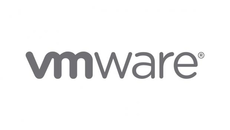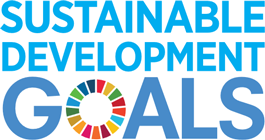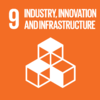Session 1 – Is technology innovation the key to achieving Sustainable Development?
Summary of Discussion
Q6. Amid growing disruptions – from extreme weather to security and unstable institutions – how do we ensure that technology innovation and technology infrastructure is more resilient and secure?
- Ancitipate growing disruptions for business, and plan for them as part of long-term strategy
- Design for today, for tomorrow, and equip users with tools to enhance and innovate in the future
- Understand clearly how technology transforms people's lives
- New, dynamic approaches are needed toward security
- Tech companies need to build resilience in communities and individuals, not just in the corporate world
- Role of technology companies in disaster response
Q5a. How do we ensure we can adapt existing technologies to make them less expensive and more accessible to the poor (i.e., “frugal innovation”) and repurposing existing technologies for new situations (i.e., “hybrid innovation”).
- Empower people - realize that governments will not lead the charge for all that's needed
- Education as a barrier to adapting existing solutions for new needs
- Create spaces for citizens to learn and innovate around what they see as needs locally
Q5. How do we scale up technology innovation and the deployment of technology solutions in those countries that need it the most to boost economic development?
- Engaging employees in corporate efforts to imrpove global development and livelihoods
- Adapting old technology to new purposes
- Partnerships are again crucial for reaching solutions at scale
- Access to education as key
- Learn from existing examples where infrastructure has scaled (transportation, internet, etc)
- Ensuring solutions can be scaled at low cost will help wider adoption
- Supportive infrastructure needs to scale along with tech, access to reliable energy and internet services
- Understand both country and context to identify needs, today and tomorrow, and build capacity of locals to implement solutions
Q4. How do we ensure that technology innovation is inclusive and does not [further] leave people behind?
- New tech must be simple and user-friendly to ensure more universal adoption
- Youth education can help ensure technological literacy of the next generation
Q4a. How do we ensure that the benefits of technology innovation are not manifested only with a small proportion of the population?
- Build capacity in-country to expand benefits
- Inclusivity is needed in the design phase
- Education as an enabler to people innovating where needed
Q4b. How do we ensure that those who are vulnerable and marginalized are not left behind in that process and share in the benefits and knowledge acquired through technology innovation?
- Digital literacy gap is significant
- Need for education to help narrow this gap
- Youth development opportunities - open 'digital' opportunities to expand their potential for economic growth and participation
Q4c. Inclusiveness around women has been mentioned as crucial by many of you so far. We know this is critical. Any examples of where this is happening? Any further comments around gender?
- Greater ability of women to contribute to and manage family income and expenses
- Tech adoption will reflect local gender norms, so there is a need to consider this and adapt
- Mobile can provide safer ways for women to do business, but there needs to be assurance of online safety as well (avoiding harrassment, etc)
- Challenge is gender gap in education, both in developed and developing world
- Designing technology specifically to engage women and girls
- Ongoing challenge to embed safety and security into technology and innovation
- More female rode models, educators, mentors to inspire young girls
Q3b. What is the role of technology companies?
- Consider environmental impact of all new products
- Engage government in new technologies to enable new policy options
- Convening partners, local governments, and people on the ground to idnetify where the innovation should be directed
Q3c. What can government do better to help identify and drive purposeful innovation?
- Taxation to facilitate wider digital access to economy and technology
- Incentives on energy saving infrastructure, vehicles, etc
- Adapt to new technologies
- Pricing on carbon and other waste
- Creating opportunities for innovation
- Regulation can be either an incentive to innovation and impact or a roadblock
- Building institutional capacity
Q3. How do we ensure that we see purposeful technology innovation for sustainable development?
- Learn from developing countries, where innovation is based on meeting needs rather than innovation for innovation's sake
- Need to align on what 'technology for good' looks like - too many organizations reinventing what this means
- The digital era has huge opportunity for women, many of whom have new economic and digital access
- To ensure adoption of new tech innovations the social and cultural contexts need to be considered - innovation cannot be in a vacuum
- Tthe importance of local understanding is again critical
- There's also the need to be flexible in responding to local technology needs as they change in real time
- Tech adoption rests on effective in-country IT training and support to local entrepreneurs - ensuring local capacity.
Q2. What are the characteristics of “effective” technology innovation for sustainable development challenges?
- Effective innovation will rely on partnerships between governments, NGOs, and businesses.
- Greater awareness and connections needed between scientific community and low-income communities, traditionally underserved
- Innovation should consider not just positive consequences, but also potential negative impacts as well
- Call for institutional attitude change
- Respond to needs with local solutions that can be scaled up to wider impact
- Effective solutions require a commitment to investment in new technological configurations
Q1. How well has the technology industry delivered, so far, on the promise of driving solutions to key sustainable development challenges?
- Examples in human rights, healthcare
- Non-technology companies are also taking some leadership, harkening the adage "every company is a technology company"
- Across sectors, an ongoing challenge is how technology can reach underserved communities effectively
- Economic inequality and wealth imbalance are major barriers to realizing tech's role in the SDGs
One pervasive theme so far from the in-person panel is designing technology with people in mind.
Meet our Special Guests
VMware
Cornell University
Institute for Transformativ…
Intel Corporation
University of California, D…
University of Oxford
World Resources Institute
Oxfam America
Center for Global Developme…
Cisco
Institute for Transformativ…
3M
United Nations Development …
VMware
Session Moderator
United States




Posts
Back to Top